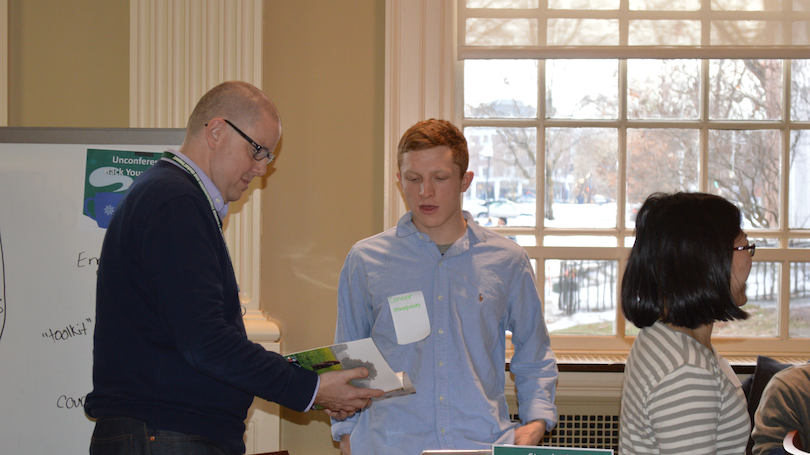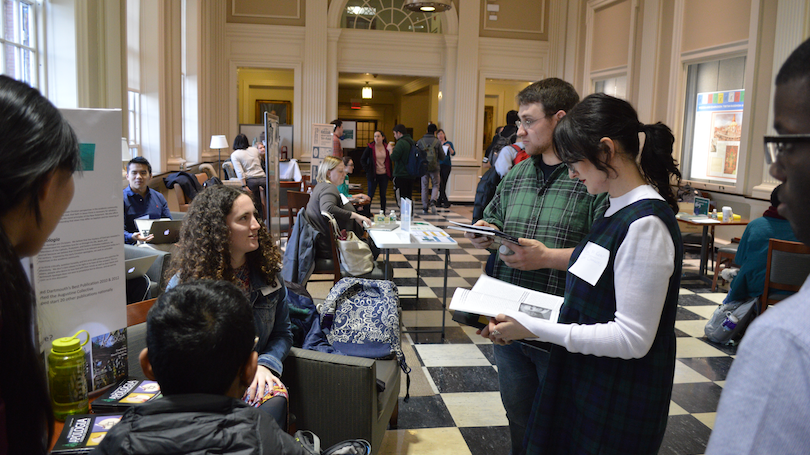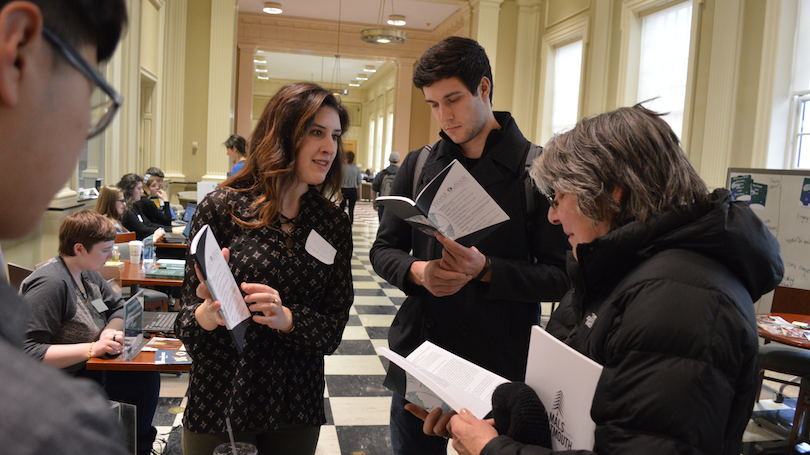Student-Led Publishing: Experiential Learning at Dartmouth
DeFelice sees student publishing as one area in which the Library can support students in developing the skills and awareness needed to work effectively in the digital information world.
“Ascertaining truth and quality of information, who owns the information and who is responsible for it—these are critical skills for all of us,” she says.
And these skills, DeFelice explains, are best learned by doing.
“It’s one thing to be told how to evaluate information, but to be in the position of evaluating others’ work, making decisions about how to edit it, whether to publish it, and doing so in a public forum, that’s a much more direct experience.”

Maeve Lentricchia ’17 and Morgan Sandhu ’17, editors of Mouth Magazine, describe their experiences, and the sense of responsibility, that come with producing a publication.
“Since we’re student run, we have complete ownership over the process and an end product to deliver. People are trusting us with their writing, so we feel a lot of accountability to them,” says Lentricchia.
“Failure means more here than in a class,” continues Sandu. “It’s not about a grade, and [the magazine] is a big commitment, so we feel the failure if we drop the ball because it really depends on us.”
DeFelice concurs that failure is sometimes part of the experience. “Plenty of student journals have started and stopped in Dartmouth’s history,” she explains, pointing to a display case curated by Rauner Special Collections Library staff containing several examples. “Risk-taking is part of experiential learning.”
For many students involved in publishing, the risk is worth taking to engage in areas of interest outside of their regular academic paths, or to push those paths to new boundaries.

For student editors of the Dartmouth Undergraduate Journal of Science, there is an appeal to integrating two fields of practice—science and writing–that they typically experience as separate.
“I am interested in both, and being involved with this journal allows me to bring those interests together,” says Sumita Strander ’18.
James Howe ’17, a Neuroscience and Biology major, finds value in being able to make a contribution to his field of study while still a student.
“We are making an impact through the journal by publishing original research, but also by summarizing scientific articles and translating complex ideas for the general population,” he says
For student editors of Humbug, a journal of creative writing, it’s about finding an outlet and carving out time for their creativity.
“Writing makes me happy,” says Isabelle Blank ’19. “Humbug is a group of burgeoning writers guiding each other and spreading the creative spirit.”
Freya Jamison, co-Editor-in-Chief of World Outlook, values the opportunity that the journal provides to her peers.
“The journal allows undergraduates to produce scholarly articles at a level that they wouldn’t otherwise. This is something you would typically do as a PhD student,” she says.
Seizing new opportunities, embracing the challenge, synthesizing learning, pushing boundaries, taking ownership. These are just a few ways to describe the student-led publishing efforts, and perhaps all the experiential learning opportunities, taking shape at Dartmouth.
“Opportunities like this empower students to bring their learning to life in new and challenging ways” says Associate Director for Experiential Learning Ashley Kehoe. “They are participating directly. They are creating new knowledge.”
This post first appeared on the website of the Dartmouth Center for the Advancement of Learning.
